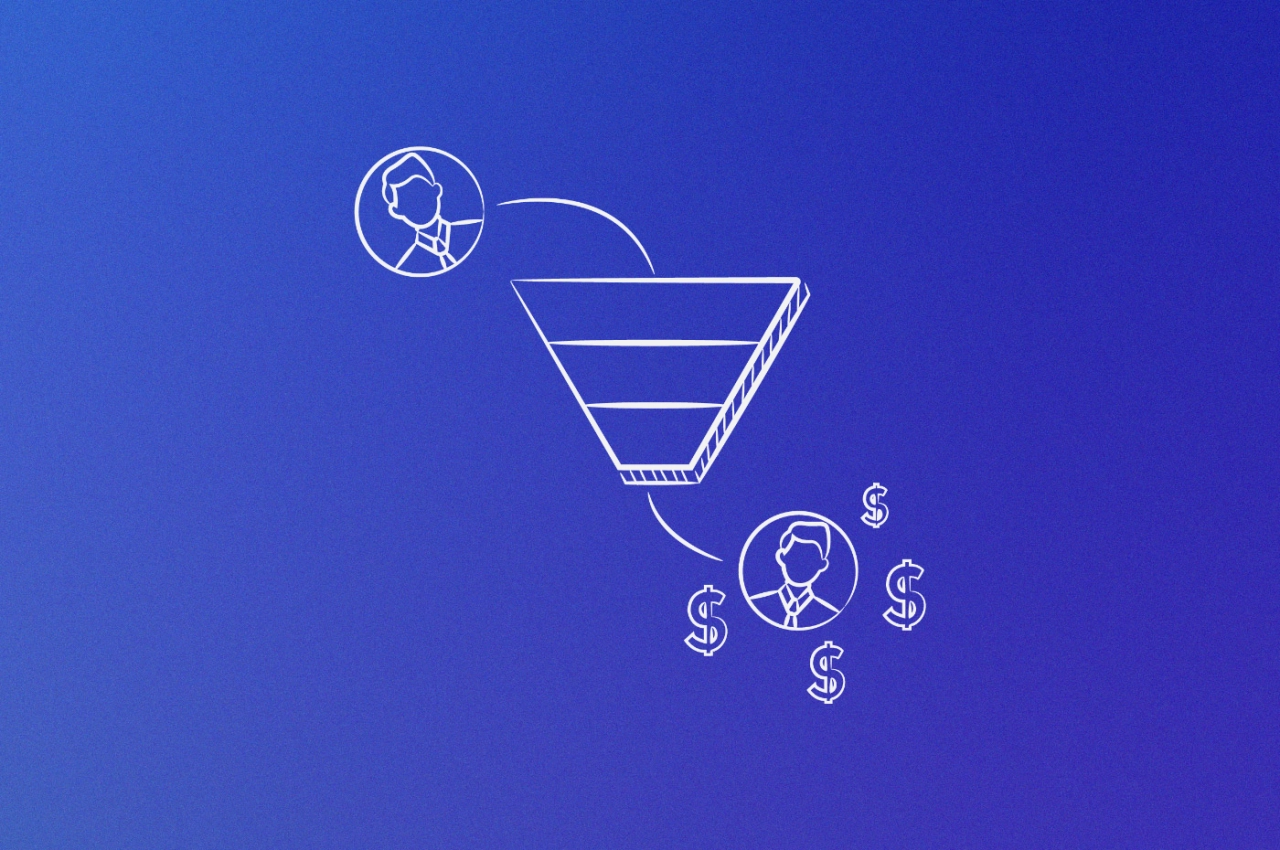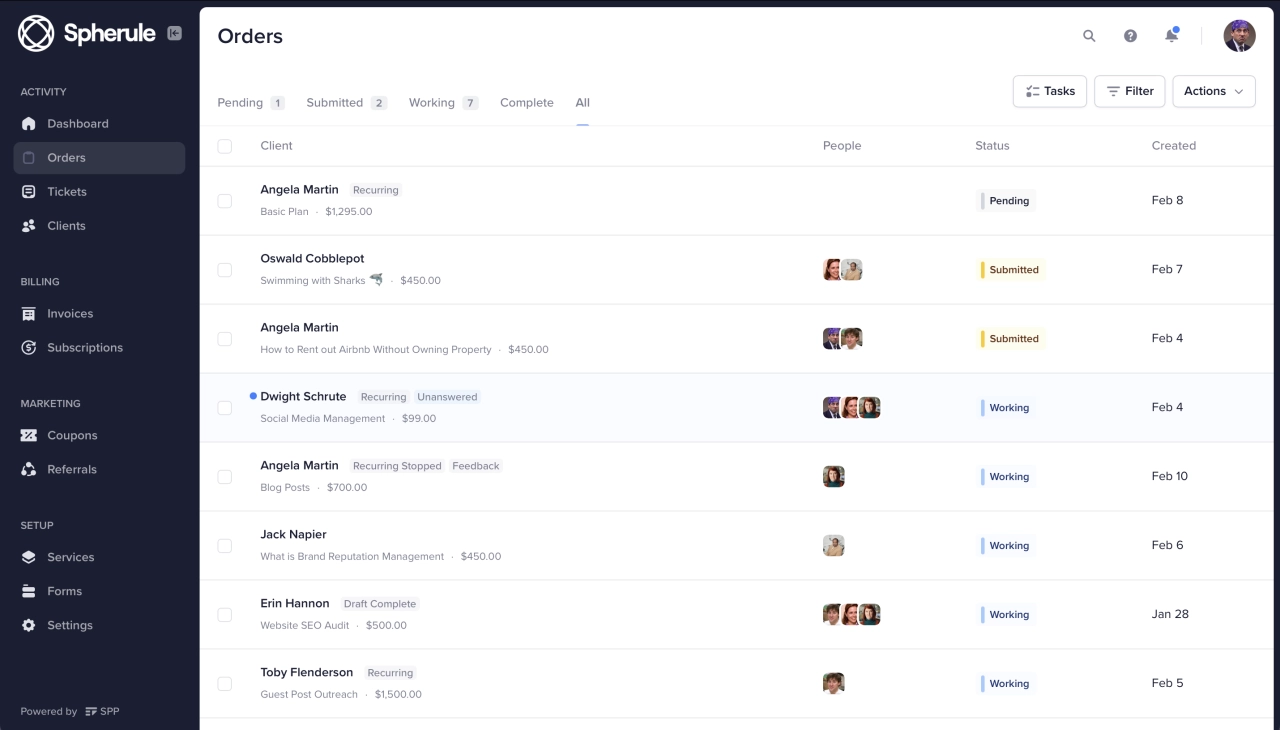Every day you open your email inbox only to find the same boring attempts to get your attention. Some emails are clever and try to hook you with a question, others use boring templates. All are lead generation attempts, hoping you’ll bite the bait, and jump on a quick call, only to be sold something (you might not even need).
At SPP, we know that lead gen is something most companies struggle with. They read about magical recipes successful company owners share online—but what has worked for them doesn’t have to work for you. And then there’s the question, what is lead generation exactly, how does it help me, and why should I pay attention to it?
Let me answer those questions for you.
What is a lead?
To understand what lead generation is, and why it’s important, let’s break it down by defining what a lead is. The term describes a person that has an interest in a company’s service or product.
In the customer journey stage, they have transitioned from the website visitor and could eventually become a customer. For a website visitor to become a lead, they need to express interest, either by filling out a contact form, a survey, or trying out a product.
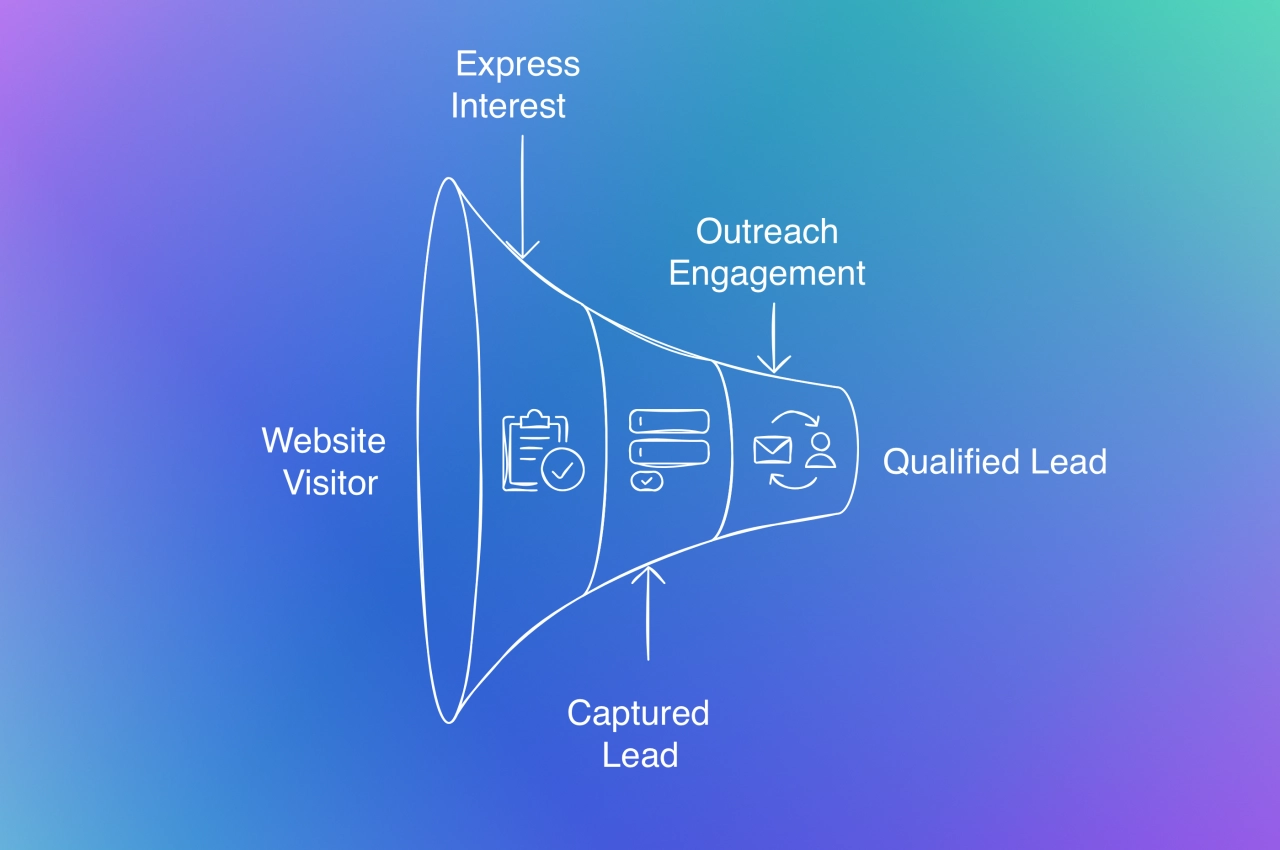
Once a lead has been captured (in a client CRM), companies usually reach out, either via email, phone, or social media. The reason why a business wants leads to fill out forms and surveys is that it helps them gather information about them, be that their name, company size, or anything else that can be used to personalize the experience. It also helps to eliminate leads that have no interest in your services.
The different types of leads
Leads are potential customers who show interest in your product or service. There are different types of leads based on their level of engagement.
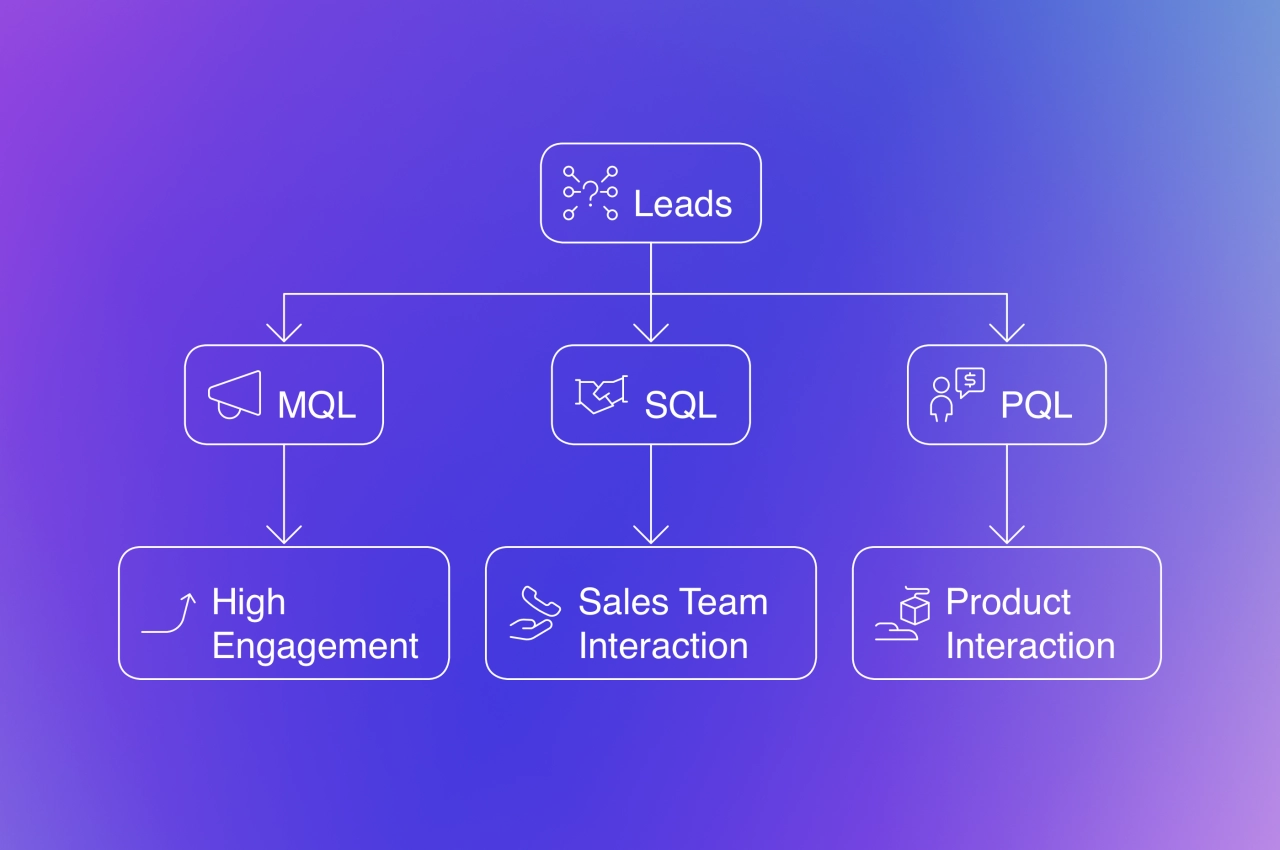
MQL (Marketing Qualified Leads)
These individuals are identified through marketing campaigns where they have shown interest in specific products or services, resulting in high conversion rates and significant sales volume. For example, a company might offer an e-book on digital marketing, leading to numerous downloads.
SQL (Sales Qualified Leads)
SQLs are generated when sales teams interact with potential customers to evaluate their readiness to purchase your product. For example, the sales team contacts a decision-maker at a company interested in purchasing software, resulting in them being classified as a sales qualified lead.
PQL (Product Qualified Leads)
Product qualified leads (PQLs) are prospective customers who have shown interest in your product or service by performing specific actions like requesting demos, trials, or quotes. They usually need less qualification than marketing qualified leads but more than sales qualified leads; they are prepared to discuss purchasing decisions with a representative from the company providing the solution.
What is lead generation?
Now that you understand what a lead is, it’s quite easy to make the connection about lead generation. It’s the process of attracting people interested in your product or service, solidifying their interest with the help of case studies and testimonials, until they become a customer.
The hard part about lead generation is coming up with unique ways to attract visitors, showcasing your offering in an easy to digest way, and finally converting the leads. Some companies try to get leads on a call and demo their product, others take an approach that takes more time: they write blog posts, ask visitors to subscribe to a newsletter, and slowly educate them about their offering. When they express interest, they finally become a lead.
At Service Provider Pro, we take the slow approach by educating customers with our content. As you can see above, we place newsletter opt-in forms into our blog posts. Those interested in staying up-to-date with newly published content, as well as other relevant posts, can receive updates straight to their email inbox.
Now that you’re aware of what lead generation is, read these two posts to compare it to brand awareness and customer acquisition.
Why is lead generation important?
The process of lead generation is basically a verification process. It verifies that someone visiting your website, LinkedIn profile, etc. isn’t just looking for general information—they show a purchase interest. This is very important for your sales team, as they need to be certain that the leads they receive want to purchase a product or service. Why convince someone to buy something if they have no interest in spending money?
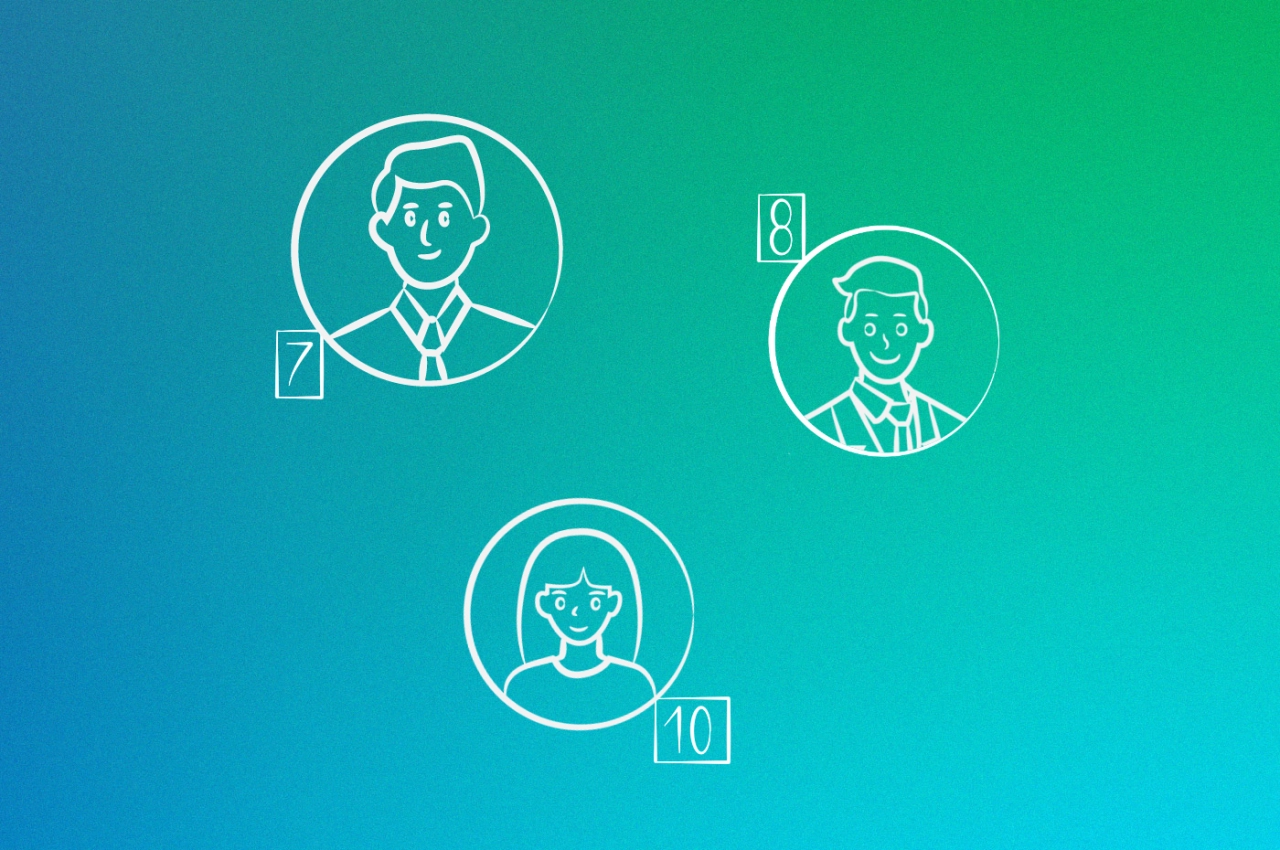
To ensure that marketing and sales teams focus on qualified leads, they have a lead scoring process in place. That process attributes a number to new leads based on the interest they express in products and services, their budget, and other factors; some teams are talking about “hot”, “warm” and “cold” leads instead.
Scoring leads is especially important in B2B lead generation, as some companies are looking to attract businesses from certain companies, or within a specific budget range.
Does lead generation work?
Six hours—that’s how much time 66% of marketers spent to generate leads on social media, according to the 2022 Social Media Marketing Industry Report from Social Media Examiner. With that said, a lot of work needs to go into targeting and making sure that you grab the attention of a potential lead; and every social platform has a different format that works best.
So yes, while lead generation does work, you need to find out which strategy works for you—and that takes time (and often money). The key to success is to keep your costs down, and make use of automation. Modern automation software has a lot of potential, especially when it comes to lead nurturing, as an infographic by ANNUITAS Group shows: businesses that nurtured leads with automation software increased the number of qualified leads by 451%.
The lead generation process explained
I’ve mentioned the customer journey before. To better understand the process of lead generation, let me show you an example a customer might go through: A person searches for “b2b content writing agency” and finds your agency’s landing page. After browsing for a bit, they click on a button to find out more (a click-to-action). The next page is a landing page designed to convert visitors into leads; it promises a free 500-word blog post in exchange for some contact information.
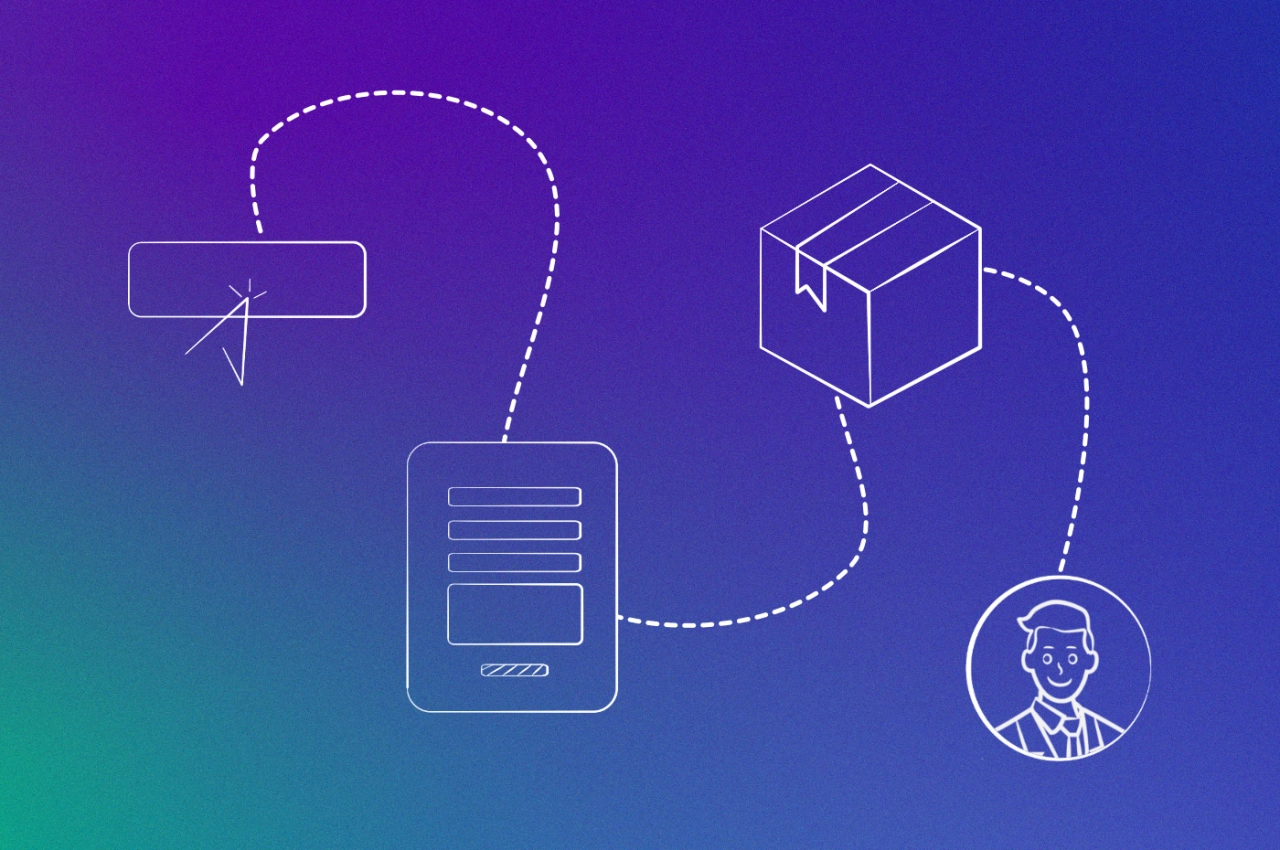
The process is visitor → CTA → landing page → form → offer = lead.
Not only can the above-mentioned offer qualify leads, it’s also a great way to set expectations, and allows leads to test your agency without investing a single cent.
Who is responsible for lead generation?
Lead generation is traditionally a responsibility that is attributed to a sales team. However, smaller companies might not have a sales team, and even if they do, lead generation should be a team effort.
While sales people are great at what they do, they don’t always have the most in-depth knowledge about the product/service. Only the success, support and product teams know every little detail. And then there’s the marketing team who know how to target potential leads. You can see where this is going: everyone should have a bit of input, but ultimately, the marketing and sales team should take the lead, while the other teams have more of a supporting role.
Should I use lead generation services?
According to a Hubspot report, for 61% of marketers, lead generation is a major struggle, either due to lack of resources, knowledge, time, or budget. This begs the question, should you outsource lead generation? Many businesses have transformed their inbound marketing knowledge into a lead generation service. Some of them only serve specific niches, while others are happy to find leads in every niche.
One thing to keep in mind that using lead generation services is usually linked to upfront costs due to multi-month retainers. So there’s no way of knowing if the results are satisfactory without investing a few thousand dollars.
Tools and technologies for lead generation
Lead generation tools and technologies are essential for businesses to capture potential customers from various lead gen channels.
Sales teams use CRM systems to manage leads as they progress through different conversion stages. These systems track interactions with prospects, including emails, phone calls, meetings, and appointments.
Marketing automation tools enhance the lead generation process by automating tasks such as email campaigns, content optimization, and data analysis, thereby improving efficiency and reducing costs.
AI-driven solutions, like chatbots, are increasingly popular in lead generation. Chatbots engage potential customers through interactive conversations, guiding them through complex sales processes.
The role of these technologies is to enable companies to generate leads more effectively and efficiently, ultimately driving revenue growth.
Scale your business with lead generation
If you’re looking to build an agency that is successful, you should start thinking about ways to generate leads. While there’s no solution that works for everyone, there are a variety of lead generation strategies you can test out.
- An Agency’s Guide to B2B Lead Generation
- The Ultimate Guide to Inbound Marketing for Agencies
- Top 10 Lead Generation Challenges (and How to Overcome Them)
- Best B2B Demand Generation Agencies + What Is Demand Gen
- Profitable Lead Generation Niches for Agencies
- Step-By-Step Tutorial to Generate Leads With Content Marketing
- How to Automate Lead Generation: Tools, Tips, and Best Practices
